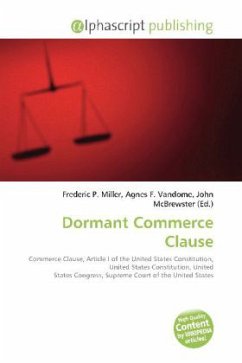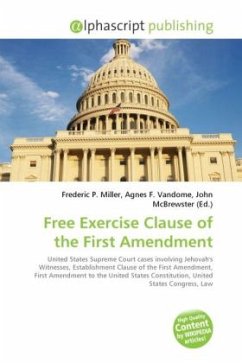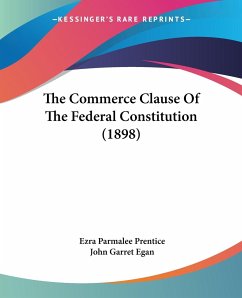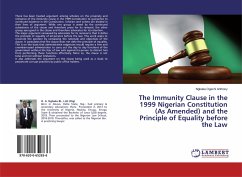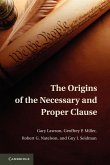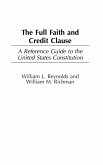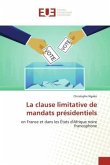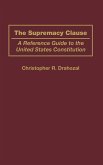Please note that the content of this book primarily consists of articles available from Wikipedia or other free sources online. The Dormant Commerce Clause, also known as the Negative Commerce Clause, is a legal doctrine that courts in the United States have inferred from the Commerce Clause in Article I of the United States Constitution. The Commerce Clause expressly grants Congress the power to enact legislation that affects interstate commerce. The idea behind the Dormant Commerce Clause is that this grant of power implies a negative converse a restriction prohibiting a state from passing legislation that improperly burdens or discriminates against interstate commerce. The restriction is self-executing and applies even in the absence of a conflicting federal statute. The premise of the doctrine is that the U.S. Constitution reserves for the United States Congress at least some degree of exclusive power "to regulate Commerce with foreign Nations, and among the several States, and with the Indian Tribes". Therefore, individual states are limited in their ability to legislate on such matters. The Dormant Commerce Clause does not expressly exist in the text of the United States Constitution.
Bitte wählen Sie Ihr Anliegen aus.
Rechnungen
Retourenschein anfordern
Bestellstatus
Storno

